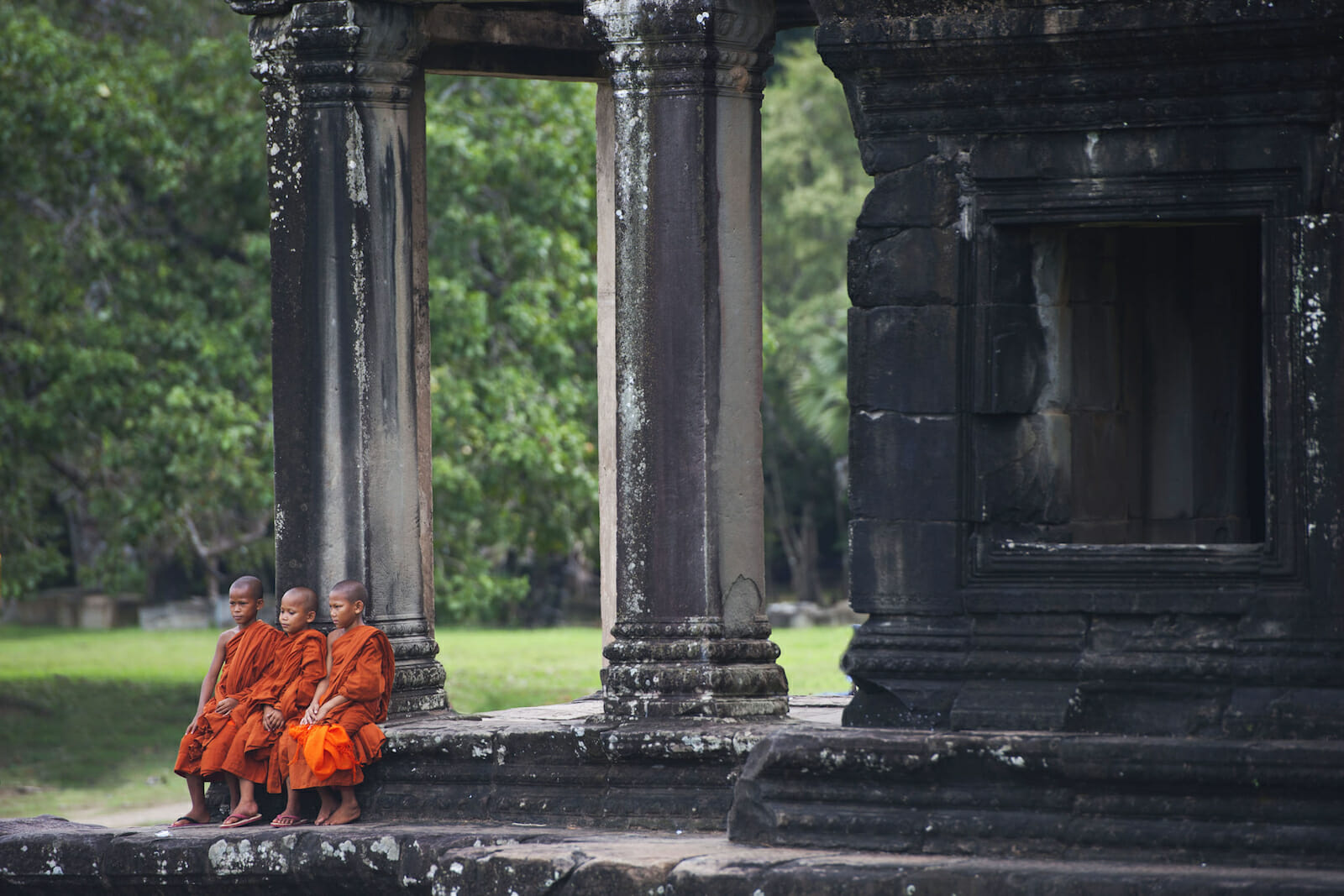
Cambodia’s ‘Terrorists’: Invoking Terrorism for Political Expediency
Chams and Khmers have peacefully coexisted in Cambodia since the fall of the Khmer Rouge, but communal harmony is being undermined by the growing ethnonationalist and religious militancy in Southeast Asia. Surrounded by corrupt neighbors weakened by extremism, Cambodia’s fight against rising religious fundamentalism has strained intra-state relations and made the country an important outpost in the ‘war on terror.’ Religion has only recently become an issue in Cambodia. Government concerns have spread over the impact regional extremism will have over the country’s minority Muslim population, which has led to policies of intimidation and violent repression. These communities have become a scapegoat for the nation’s ills, as well as an attraction for foreign aid.
With the United States and China competing for influence in the region and stockpiling the Cambodian government with much-needed support, mounting fears of the country falling into decentralized chaos has only benefitted the nation’s political leadership. Much work is needed to stabilize the country – securing borders, strengthening the judicial system, correcting land distribution policies – but Prime Minister Hun Sen and other political leaders are short-sighted, focusing on the immediate gains from foreign assistance rather than correcting domestic concerns.
Cham Muslims
After living in obscurity for generations and surviving extermination at the hands of the Khmer Rouge, Cambodia’s Cham Muslims are in the midst of a revival, brought about by a communal need to redefine its identity and assisted by foreign influences. Establishing an identity is important for a population who, like the rest of the country, is still rebuilding after the Khmer Rouge; a poverty-stricken, marginalized community longing to reconnect with its religious past.
Generational divides are hampering the community’s cohesion, however. Younger generations want to move away from the worldly, Buddhist-influenced Cham traditions and follow a more conservative Islamic path.
The transition to a purer religious tradition stemmed from the entrenched poverty and social isolation many in the community had to endure. The demand for knowledge has led Middle Eastern organizations to assist in the Cham revival by establishing religious foundations throughout Cambodia. Some organizations are fundamentalist – teaching Dawa Tablight and Wahabbism – and have caught domestic and international attention.
Prior to 11 September 2001, the financial assistance and general interest the Chams received from Middle East organizations was deemed a means to protect the community from government repression and extremist groups. The community became a strategic factor in the country’s brokering agreements with other governments. Cambodia’s government viewed the Chams as a means to expand its domestic economy, but after 11 September 2001 claims of terrorist threats reaped larger rewards for the country’s political elite.
Enemy or Scapegoat?
As the West ramped up its ‘war on terror,’ the Cambodian government responded in kind by executing restrictive policies against the Cham with the justification that the community could act as a fifth column and sympathize with terrorist groups. The nation’s preemptive strike was vindicated two years later with the arrest of Jemaah Islamiyah – a leader of an Indonesian militant group – and discovery that an Islamic school was funneling money for al-Qaeda through a local foundation. These two incidents caught the US government’s attention and Washington began working closely with Phnom Penh in monitoring the Cham.
Last March, the Cambodian National Police arrested six individuals – three of whom are Buddhist monks – on charges of terrorism, illegal distribution of anti-government leaflets, and the illegal establishment of armed forces. Though most of the individuals were from Vietnam’s Mekong Delta, Phnom Penh declared that the culprits were members of the Khmer Liberation Front, an opposition group fighting against Prime Minister Hun Sen’s repressive policies. While the police state that they have thwarted a violent uprising; supporters believe the government has arrested peaceful dissenters on illegitimate charges.
Cambodia’s current political landscape has Prime Minister Hun Sen fighting for his political life to retain power, which makes the apprehension of supposed terrorists along the Cambodian-Thailand border highly suspect. Moreover, the country thwarts terrorist plots every few years – the Empire Movement, the Tiger Movement, and human rights activist Pen Bonnar – with charges, each one more ludicrous than the last, leveled against suspected terrorists.
There is always the possibility of radicalization within any religious community; however, the Cham are not transitioning to an extremist foundation that works for Phnom Penh’s advantage, so the enemy must be created rather than found. Further the need for domestic political leverage with the fact that each terror scare brings about more financial and military assistance from the United States and China and it is easy to ascertain the charges’ legitimacy.
Deleterious Foreign Investment
Concerns over Southeast Asian stability and security have led the United States and China to invest heavily in the region. The United States has inundated the region with support as a means to develop a regional defense strategy. China has responded in kind for stated similar reasons, but an honest analysis would also illustrate China’s wariness of America’s growing influence in its own ‘backyard.’ With militant groups gaining ground in Indonesia, Malaysia, Singapore, and the Philippines, Cambodia recognizes that it is central to the interests of both powers. With Beijing and Washington spending upwards of $20 million per year, the country’s political leadership understands that neither country can turn away at this point as doing so will – in the US and China’s perspective – undermine their respective national security objectives.
These defense spending programs have allowed the US and China to establish their own security apparatus in Southeast Asia; however, in doing so, they have reinforced an administration that implements repressive policies that have the potential to radicalize a population against the government. Both Washington and Beijing would be better served preparing Cambodia for possible future disasters, rather than merely reacting to past events. The current inter-state agreements only feed Phnom Penh’s need to create enemies of the state; Prime Minister Hun Sen recognizes that the more terrorists captured and plots foiled – real or imagined – the more money the country will receive for security development.

